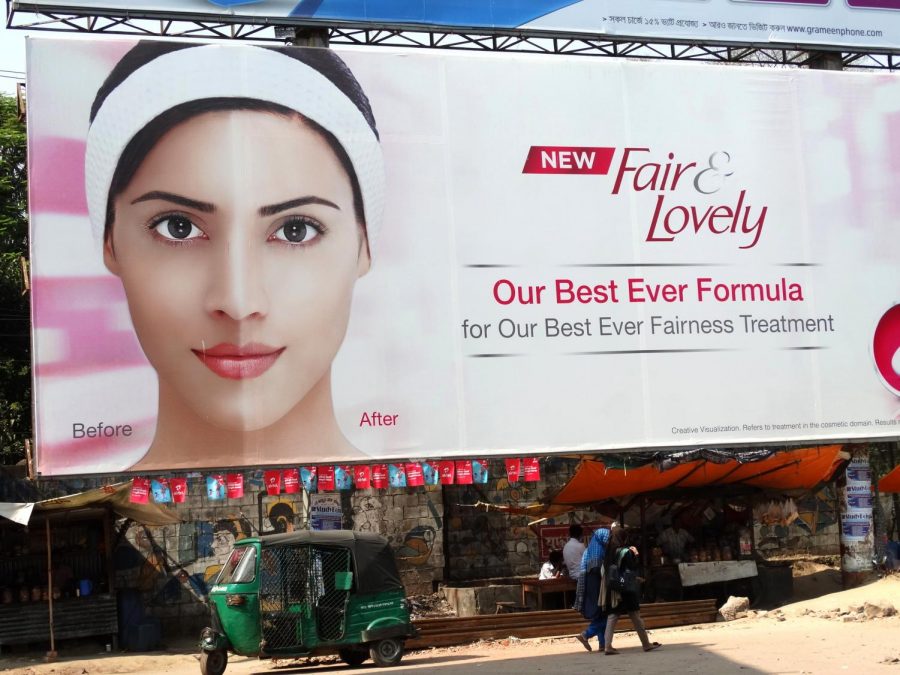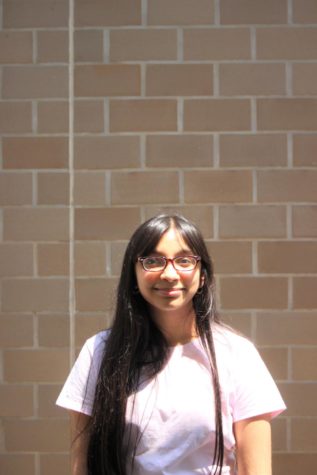Colorism leaves a dark stain on India
December 9, 2019
Time stands still in India as people continue to judge others by the color of their skin. Colorism, or discrimination on the basis of skin tone, continues to be an issue fueled by both beauty and film industries.
India’s hatred of dark skin, rooted in years of colonization, haunts naturally dark-skinned people there. While under British rule, white colonizers demeaned those with dark skin, favoring those with fairer skin. The British superiority in India showed the power struggle between the fair and the dark. As a result, even amongst Indians, those with darker skin were, and continue to be, looked down upon.
Darker skin represents a connection to the past and its traditions, while Westernization is considered to be modernization, creating a desire for pale skin. Fairness seems to equate to intelligence, power and beauty, leading many to try to achieve such skin.
The Indian beauty industry thrives on colorism and uses people’s inferiority complexes to profit. Skin lightening creams, produced by companies such as Rodan and Fields, Vaseline and, most infamously, Fair & Lovely, have a huge market in India. Their profits have consistently increased since 2012 and will likely continue to grow.
These products encourage an unhealthy imbalance between male and female beauty standards, especially prominent amongst celebrities and the media.
“[Female leads] are far more fair than male leads,” DV counselor Mrs. Rajni Nijjer commented on Bollywood movies. “They’re noticeably fair skinned. They’re not ‘caramel-colored.’ No, they’re very fair. It’s definitely noticeable.”
Celebrities, including Shah Rukh Khan, Katrina Kaif and Hrithik Roshan, have endorsed Fair & Lovely. These celebrities are notably fair-skinned compared to the majority of Indians and consequently prosper in the incredibly colorist Bollywood industry.
Eurocentric beauty standards are fully embraced by Bollywood. Few actors with dark skin can find success in the industry. And the ones who do often play the role of a villain or exist for a comic relief. Dark skin is demonized and treated as a punchline. The majority of background dancers in Bollywood films are white people simply dressed in Indian regalia, in order to avoid portraying anyone with dark skin favorably.
A positive feedback loop exists between Bollywood and the beauty industry: Bollywood influences beauty standards, and society’s beauty standards dictate who succeeds in Bollywood.
“I know in beauty in Western culture, there’s a big push for inclusivity with skin tones and makeup,” Nijjer added. “But it’s double-edged. While they’re pushing for inclusivity, they’re also picking leads who are already fair-skinned.”
Many who support bleaching creams will point to their medicinal purposes. In the West, prescription bleaching creams such as Tretinoin cream are used to prevent skin issues like acne and pimples. Creams in the West are not part of the beauty industry, but are rather advertised for their health benefits. The bleaching creams used in India, however, have dubious health advantages. On the contrary, these creams can lead to health detriment. For example, a small amount of mercury is used in Fair & Lovely, but can cause skin issues if used in heavy doses.
Others may point out that people have the freedom to do whatever they want with their skin. And yes, while those who lighten their skin have the liberty to do so, it is important to address why they feel the need to do so. There are no health benefits to such an action, suggesting that many have the goal of lightening their skin.
The need to lighten skin is a problem, and it should be addressed. Destroying the colorist mindset that plagues India is another step towards decolonization.
“It’s good that [Priyanka Chopra has recently begun] increasing awareness, but I don’t know how much it actually does for other brown girls,” Nijjer said. “She’s a former Miss [Universe]. Of course she’s going to be endorsed, but I need someone who’s more like me.”



